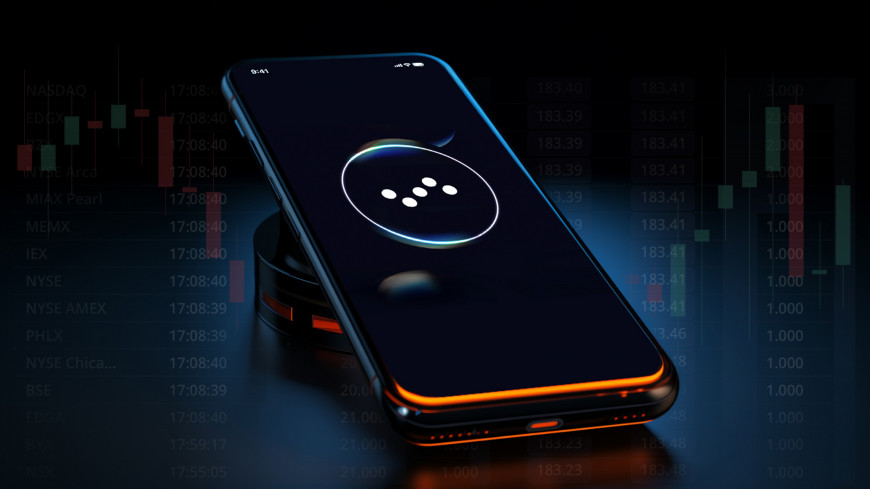AI Trading Assistants: Unleashing Efficiency for Brokerages

The question is no longer are we using AI for efficiency, but rather, how are we using AI for efficiency.
The trading space is a particularly interesting arena to watch this transition unfold because software development companies had already been working on chatbots and similar automation tools, before the wave of large language models (LLMs). Meaning that with an already solid foundation, they have been able to build on this rapidly, and are rolling out advanced tools with remarkable capabilities.
According to ICOholder, the “integration of AI into quantitative trading strategies has enabled traders to uncover hidden patterns in financial data, refine predictions, and unlock profits that were previously elusive.”
Cue AI trading assistants.
What are AI Trading Assistants?
AI trading assistants dramatically improve the trading experience. They combine two areas: Machine learning and financial analysis.
Machine learning (ML) is a core technology with the ability to learn from data.
We can think of ML as the Oz behind the curtain, allowing AI trading assistants to take financial analysis data and adapt and respond to it, with minimal human intervention.
‘’But, your average investment Joe can already do that’’. Great point. Here are the real distinguishing advantages of AI trading assistants in a nutshell:
- They can analyze vast amounts of data at incredible speeds (much faster than humanly possible) to provide insights, predictions, and trading signals tailored to trader’s preferences.
- They can provide an automated ‘exceeded expectations’ level of customer service. Think response time, product knowledge, and multilingual capabilities. We’ll expand on this below.
How do AI trading assistants work?
AI trading tools collect a wide variety of data related to markets. This will include historical price data, news and media monitoring, economic indicators (like GDP and interest rates), and social media sentiments.
AI trading assistants are trained on this data to identify patterns, correlations, and potential catalysts, to predict market movements.
Using these outputs, they create trading strategies with risk management algorithms built into them.
Example: AI trading assistants can be used to respond to potential upward and downward trends, by analyzing moving averages of stock prices over different time frames.
A strategy could be to buy an asset when the short-term moving average crosses above its long-term moving average (indicating a potential upward trend). Conversely, it could sell or short-sell an asset when its short-term moving average crosses below its long-term moving average (potential downward trend).
Perhaps a benchmark where they distinctly outperform traditional trading is the ability to continuously learn from their successes and failures (no shots fired), adjusting their strategies, based on real-world performance.
AI assistants also have the capability to execute trades. They can place orders, managing the timing and size of the trades to optimize for factors like price and volume.
For traders and investors who prefer to make the final decision on trades, AI trading assistants provide recommendations, alerts, and detailed analysis to inform those decisions.
Industry-leading versions like our AI trading assistant Devexa, have interactive features that allow for voice commands, gesture detection, and compatibility with smart devices, truly replicating a personal assistant engagement.
How AI chatbots like Devexa help both brokers and traders
Two major areas where AI chatbots transform efficiency for both brokers and traders are automated trading support and trading platform customer care.
Thankfully, chatbots that used to feature in nightmare customer service interactions have had their day.
Forbes reported that businesses are predicting a 60% improvement in customer relationships thanks to AI.
Devexa is trained to understand terminology and slang, allowing her to educate and answer trader questions with organic and natural dialogue.
Traders can chat with Devexa for tips and insights on specific topics (for example, forex help trading).
For brokers, automated trading support means faster response times and an improved customer satisfaction index (CSI). Users can open accounts and subscribe to market news and trading alerts, with personalized interactions to maximize conversions and ultimately, boost sales.
Devexa’s advanced admin panel for broker staff allows for 1:1 communication with clients, mass message broadcasting, and deep analytics reporting. Traders can also engage with Devexa using video, co-browsing calling, and voice messages.
Learn more about how chatbots are transforming the financial market.
How can brokerages integrate Devexa into their existing systems?
The easiest, fastest, and most cost-effective method of integrating Devexa into current operations is white-labeling.
Chatbots can be restyled to match the design of a trading platform or customer portal, with the added feature of seamless integration with Salesforce and MetaTrader.
They can also be pre-programmed with scripts and common scenarios.
This skyrockets the consistency of professionalism, tone, product knowledge, and quality in all customer service interactions with end-users.
Ready to capitalize on automated trading support?
AI trading assistants are already being recognized as the future of online trading. In reality, most brokers are not really considering if they should integrate an AI assistant. The proven performance data almost renders this question redundant. The focus is now on how to integrate. Devexperts is helping brokerages adopt modern technology to ensure they maintain a competitive edge. Reach out to us today.